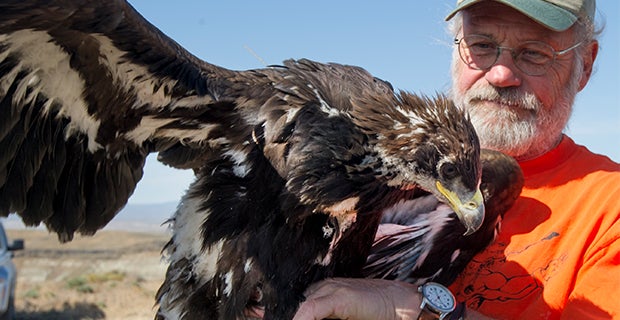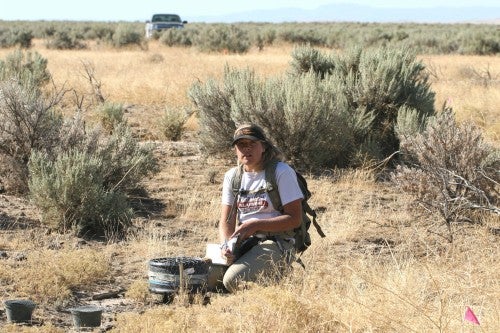
The Idaho State Board of Education today unanimously approved the creation of a Ph.D. in Ecology, Evolution and Behavior at Boise State University. The new interdisciplinary program will capitalize on current undergraduate and master’s programs in biology and raptor biology that were identified as among the university’s strongest in the school’s recent program prioritization process. The new Ph.D. program is slated to begin in fall 2017.
“This newest doctoral program will significantly increase Idaho’s reputation as a leader in the field of ecological research and education, while also providing increased opportunities for cross-institutional collaboration,” said Bob Kustra, president of Boise State University. “We couldn’t be more excited about the trajectory of our graduate and research efforts, which were recently recognized by the Carnegie Foundation with our classification as a doctoral research institution
The Ph.D. program will join faculty members from three academic departments (biological sciences, geosciences and anthropology) as well as the Human-Environment Systems research center in the College of Innovation and Design. It also will build on current partnerships with Boise State’s Intermountain Bird Observatory, the U.S. Geological Survey Snake River Field Station, the Peregrine Fund, Gorongosa National Park in Mozambique, Africa, and others, as well as collaboration with faculty members at the University of Idaho and Idaho State University.
“Approval of this program speaks to the excellence of our faculty in the ecological sciences,” said Martin Schimpf, provost and vice president for academic affairs. “Thanks to their efforts, Boise State has become a respected partner in efforts to shape our understanding of, and response to, critical environmental issues.”
Scientists from across disciplines will use theory from biological, physical and social sciences to contribute to basic research and solve applied problems. Students will develop a new understanding of complex ecosystems as a means for delivering actionable and understandable knowledge to the public and to national decision-makers.
The EEB program aligns closely with the mission of the Idaho Experimental Program to Stimulate Competitive Research (EPSCoR), which strives to build the research competitiveness of the state’s universities. This is one of many programs that will allow Boise State to achieve its greatest potential in terms of research productivity, graduate education, and the long-term retention and productivity of these faculty investments.
It also will contribute to the long-term sustainability of EPSCoR by demonstrating substantial return on the investment of National Science Foundation resources. Peter Goodwin, EPSCoR director, stated in his letter of support that the Ph.D. is “a logical next step to build on past investments and ensure the continued growth and sustainability of these initiatives.”
“This program is impressive for a number of reasons, but chief among them is the degree to which it leverages our faculty’s expertise to create new and significant value for our students and the state,” said Tony Roark, dean of the College of Arts and Sciences, which will house the new program. “There’s incredible potential here, and I’m excited to see where our faculty, students and partners take their work, now that they have some room to run.”

Boise State graduate student Michelle Jeffries counts seeds collected from the slickspot peppergrass plant.
This is the 10th doctoral degree at Boise State. The university recently was designated a doctoral research institution by the Carnegie Foundation, which maintains the nation’s premier college classification system. The designation reflects Boise State’s unique journey in building the research and academic programs that the modern economies in fast-growing Boise and the state of Idaho demand.
The most recent edition of Boise State’s research magazine, Explore, focused on the faculty and student research that is contributing to the university’s growing expertise in ecology, evolution and behavior. Stories include:
A New Dawn: Researchers are tackling tough environmental questions at Gorongosa National Park in Mozambique, Africa.
Evolutionary Tales: In the world of bats vs. moths, evolutionary adaptation is key to survival.
Empty Nesters: Golden eagles are responding to human encroachment in Idaho’s Owyhee Mountains by abandoning their nests.
The Inside Scoop: There’s still a lot to learn about the mysterious microbes that thrive inside the guts of their insect hosts.
Ants in Your Plants: Thieving harvester ants threaten the survival of a rare flowering desert plant.
BY: KATHLEEN TUCK PUBLISHED 4:22 PM / FEBRUARY 18, 2016